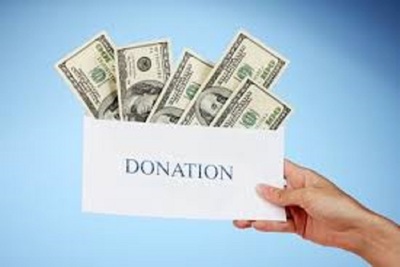American Insurance Association issued the following announcement on Oct. 31.
Hurricane Zeta made landfall in Louisiana as the record-setting fifth storm to hit the state in a single hurricane season. Many Louisiana residents already have insurance claims open from a previous storm, but if Zeta caused new or additional damage, then a new claim needs to be filed with your insurer, according to the American Property Casualty Insurance Association (APCIA).
“If you experienced damage from Hurricane Zeta, contact your insurer as soon as possible to get the claims process started, even if you have an existing claim open from another storm,” said Lee Ann Alexander, vice president of state government relations for APCIA. “Take pictures or videos and gather documentation that can help your adjuster differentiate between previous damage and new damage.”
Damage associated with wind and other severe weather is typically covered under a standard homeowners, renters, or business policy. Property owners with flood damage who have flood insurance need to contact their flood insurer to file a flood-related claims. If you have flood damage but do not have flood insurance, federal disaster assistance may be available in the form of grants and loans if a federal disaster is declared for Hurricane Zeta.
After hurricanes and natural disasters, it is common for dishonest contractors or third parties posing as contractors to go door-to-door looking to prey on homeowners in desperate need of repairs. There were reports of contactor fraud and abuse occurring in areas recovering from Hurricanes Delta and Laura, so Louisiana residents need to be especially cautious.
“Before signing any contracts for repair work, talk to your insurer first to make sure the damage is covered, then find a reputable and licensed contractor to do the work,” added Alexander.
WHAT TO DO IF YOUR HOME IS DAMAGED
Contact your insurer as soon as possible to report the damage. Have your policy number ready.
Photograph or videotape the damage to share with your insurer and keep a copy for your records.
Make temporary repairs if it is safe to do so. If there are holes in your roof or your windows are broken, be sure to cover them as quickly as possible to prevent further damage.
Save receipts for any materials you purchase to assist with repairs. You may submit them to your insurer for reimbursement.
Do not throw away any damaged items until an adjuster visits your home. Keep in mind that due to COVID-19 and social distancing, you may collaborate with an adjuster via a video call instead of in-person.
Many standard homeowners and renters policies provide reimbursement of additional living expenses when the property is determined to be uninhabitable due to damage. This provision helps pay for things like temporary housing, restaurant meals, overnight parking, and laundry service. Check with your insurer or agent for a list of what your policy will cover.
WHAT TO DO IF YOUR HOME IS FLOODED
Shovel or scrape mud off floors, furniture, and walls before the mud dries. Then hose down the walls with clean water, starting from the ceiling.
Major appliances, such as refrigerators and stoves, can be washed and dried completely. In most cases, they will not be damaged unless they were operating at the time the water covered them.
Diluted chlorine bleach can be used to clean household items, appliances, walls, and floors and will help control odors.
Wood furniture should be dried outdoors, but not in direct sunlight. Remove drawers and other moving parts before they dry.
Food utensils and equipment should be washed thoroughly and sterilized before using. Any food that is open and exposed to flood waters should be discarded.
WHAT TO DO IF YOUR VEHICLE IS FLOODED
Be cautious about starting a vehicle that has been exposed to flood waters, and if your vehicle is missing, report it to the police.
If the water got above the floorboards, or the seats are wet, do not try to start the car. The electrical system is the most sensitive to water damage and trying to start the car could cause more damage.
Open the hood and check the air filter. If it is wet, do not try to start the car.
Report the loss to your auto insurer and protect the car from further damage by covering any broken windows. Water damage to a vehicle is typically covered under an auto policy if the policyholder has chosen to purchase comprehensive physical damage coverage.
Original source can be found here.










 Alerts Sign-up
Alerts Sign-up